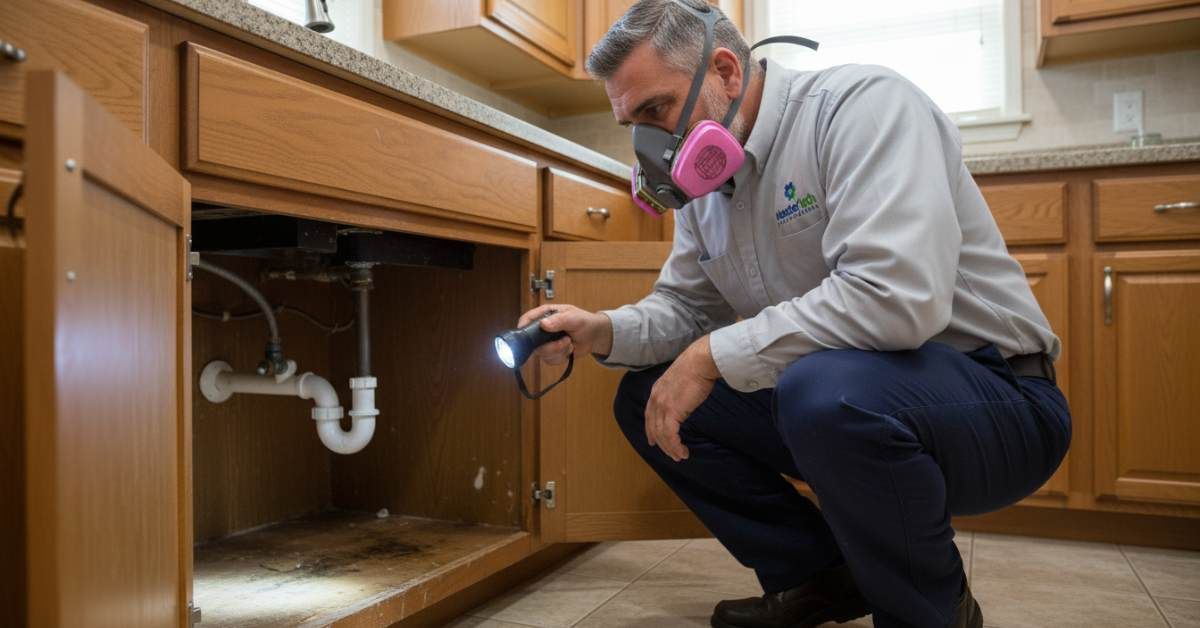
Business Growth Management
We often associate business growth with business success. I mean, why wouldn't we? A growing business often implies a thriving business. While this is partly true-- growth alone is not enough to secure business success. In order for mold remediation business growth to lead to business success, mold remediation business owners need to be able to manage the growth and support the growth with adequate business resources. While well-managed growth is incredibly beneficial for small mold inspection businesses -- problems may arise if your mold cleanup business is inadequately equipped or your team is ill-prepared to handle the growth of your mold services.
Defining Owner/Management Roles within a Mold Remediation Company
Most small mold removal businesses, during their infancy, will require business owners to take on several roles at a time. This might mean you will have to be in the field for remediations, go on mold inspections and manage administrative tasks all at the same time as handling financial decisions, marketing decisions and so much more. In the beginning, this is to be expected of small business owners. However, as the business develops and expands, you will begin to fall into your leadership role as the owner and hire technicians, managers and administrative staff that will handle the stuff on the front lines. With time, you will need to establish a hierarchy within your team and define management roles with clear objectives and responsibilities.
Proper management will ensure operational efficiency that can effectively support business growth. Additionally, clearly defined roles will make it easier to identify team development opportunities and hiring opportunities during business growth phases. A well established team will be able to adapt with growth and ensure continued business success.
Developing Systems & Following Procedures For Business Operations
At the start of a new mold business, the business owner will likely be heavily involved in most aspects (if not all aspects) of the business. In the beginning, owners will likely personally review all the details of the team's work and keep a close eye on business operations to catch and correct mistakes as needed. Ideally, this will not go on forever. When a business begins to take off and grow, the business owner should not have time to micromanage, review every job and comb through every operational detail. By developing operational systems and training your team to commit to the systems, you will be able to ensure that business growth translates to business success.
Systems and procedures are so incredibly important for operating a business, especially in a service industry like mold remediation. You need to establish quality control standards, safety standards and operational protocols to ensure that every job is done right and at the level of quality that you built your company on. Structured set of systems and procedures will ensure consistency across all jobs, regardless of business volume. Just because it is a growth period, does not mean the quality of work should suffer.
As your business develops and grows, you need to monitor for opportunities to develop or update your procedures, standards and protocols to ensure continued efficiency. It is important to train your team and make sure they are committed to the systems. When your business relies on systems and procedures, it will manage growth much better than one that simple scrambles to keep up as business expands.
Monitoring Business Finances & Maintaining Ongoing Company Growth
Not all your money is yours. It is exciting when your business is growing with an influx of cash flow; however, owners need to be careful not to let that excitement lead to impulsive business decisions and spending. When the business is doing well, it can be tempting to spend the money -- even if it might be more than you are actually able to. While new equipment, new technology or more technicians are all excellent uses of business income, owners should always proceed with caution. If you are not careful you may spend more than you can afford and compromise your financial stability. The growth phase that should have resulted in higher profits could easily turn around and cause a cash flow problem if you aren't careful to keep the growth of the business in check.
Making Strategic Business Decisions
All businesses have growth limits. Small businesses only have so many employees, only so much mold remediation equipment and only so much time to meet client demands. When growth begins to exceed that threshold of what is manageable given your existing company resources, it can be a difficult phase to navigate through. Growth can present operational obstacles that can make or break a small business. Is it the right time to hire more mold inspectors or mold remediation technicians? Is it time to invest in a larger fleet? Is it a good decision to invest in more cleanup equipment? Or, could this be just be a short-term influx in business volume that you and you team can manage through (with a little extra hard work)? There is a lot consider when your small business is seeing growth, and it is important to make strategic decisions that will turn the growth into success.
It can be difficult to grow and maintain growth as a mold remediation business. It requires strategic decisions, commitment to business plans, controlled spending and so much more. For mold remediation business owners looking for professional support and consultation through growth periods, Mastertech Franchise Systems can help. Our franchise opportunity includes the professional business training and support you need, to launch and maintain a successful mold remediation company. To learn more about our professional business training packages call (800) 559-5338.
Get in Touch
Contact Us
Don't be a stranger!
30 Broad St, Unit 7
Denville, New Jersey 07834



